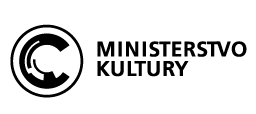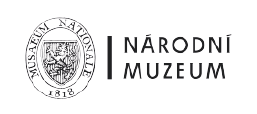Challenges of Contemporary European Heritage Care
9. 11. 2022 až 11. 11. 2022
Challenges of Contemporary European Heritage Care
The conference will be streamed online on YouTube:
- on Wednesday 9 November here: https://www.youtube.com/watch?v=_5oXVEXcHmw
- on Thursday 10 November here: https://www.youtube.com/watch?v=9FkXC1Q4hQo
On the occasion of the Czech Presidency of the Council of the European Union, the National Heritage Institute will held an international conference “Challenges of Contemporary European Heritage Care“. The aim of the conference is to bring together European academics and experts in the field of heritage care and architecture to present their views on European cultural heritage and its protection. Its mission is to stimulate debate on European heritage care, on current and future issues related to the approaches, importance and challenges of the protection of tangible and intangible heritage and to convey professional experience and examples of good practice from different European countries.
The international conference will take place from 9 to 11 November 2022 in the New Building of the National Museum in Prague.
- over twenty speakers from thirteen European countries
- four sessions
- two conference days
- excursions
Four topics
- The Importance of Care of Tangible Cultural Heritage for the Development of a Common EuropeThe growing number of international documents on the protection of cultural heritage prompts the question of how the efforts to build a European dimension of cultural heritage protection and the national dimension of heritage care can coexist in 21st century Europe. Do the unifying tendencies of international documents threaten the diversity of local approaches? Can we accept that global challenges have diverse regional solutions? And can this diversity be considered a European value?
- Current Challenges of European Heritage Care Today a number of new social challenges has to be responded by contemporary European heritage care. In relation to climate changes actively formulates principles and methodologies for 'ecologically sustainable' heritage care. The last two years of the pandemic, allowing the general public no other than virtual contact with cultural heritage, confirmed the need for digitalisation, while even professional communities have lost the tool of a live discussion "in situ" over professional issues of preservation and care. Until recently, heritage sites faced the long-term consequences of overtourism. However, as a result of the pandemic, they found themselves without visitors almost overnight. This sudden change had an impact on the operating patterns of the institutions and left long-term consequences in many other areas, such as employment, economic plans, and new forms of presentation. In this context, an assessment of the current European situation is more than necessary, as it contributes to the search for acceptable forms of visitor operations or business models and the presentation of tangible cultural heritage.
-
Protection of Architecture and Art of the Second Half of the 20th Century in Public SpaceThe dynamic development of contemporary society brings with it enormous pressure on the transformation of settlements. The youngest architecture and visual art becomes the most endangered segment of the tangible cultural heritage. Society fails to perceive their quality and the need for protection as an integral and equal part of the heritage fund. The architecture of the second half of the 20th century was significantly influenced by the post-war division of Europe into Western and Eastern blocs. However, despite the different starting conditions in each country, we can also trace common features and analogous historical lines – including the problematic ones that underlie its continued underappreciation and threat. Nevertheless, this architecture forms an integral and key part of today's European integrity and its appropriate care represents one of the greatest challenges of contemporary conservation.
- Approaches to the Care of Tangible Cultural Heritage in Relation to the Preservation of Values, Ensuring Sustainable Development and its Presentation.Heritage cares in a united Europe has its foundations in national perceptions of access to tangible cultural heritage. Together they have been trying for decades to unify the basic principles in international documents. The Venice Charter is seen as a fundamental common document to which generations of heritage professionals have referred. However, it is questionable how conservationists, architects and owners can in practice cope with the requirements of international documents in the rapidly evolving society of the 21st century, when a number of listed buildings are seeking new uses and a wide segment of buildings is a major tourist destination with new visitor demands. Examples based on practice show that many buildings that have lost their original use can be adapted to new social conditions without losing their heritage value, just as buildings that are not seeking a new use can be restored conservatively, or a new use can be found with minimal intervention in the heritage character of the building.
Excursions on 11 November
- National Museum
- Museum of Decorative Arts
- Hotel Intercontinental
For conference participants only.
More information
- Registration has been closed
- Conference language: Czech and English (simultaneous translation provided)
- program program + synopsis
- Practical information here:
Digital Transformation in the Data Space: Measurement and Assessment
In cooperation with Europeana, we invite you to an online symposium organised as part of the Czech Presidency of the Council of the European Union.
- How does data collection improve and support digital transformation in the field of cultural heritage?
- What can indicators that help measure digital transformation look like?
- How to create a richer picture?
- What are the values and concerns for institutions that share their data?
- How to be as ethical and environmentally friendly as possible?
- How to see data collection as not just a one-off but an ongoing and mutually beneficial activity?
11 November 2022, from 9:00 a.m, online
Programme here.
Contact
e-mail: heritage22@npu.cz
Partners


